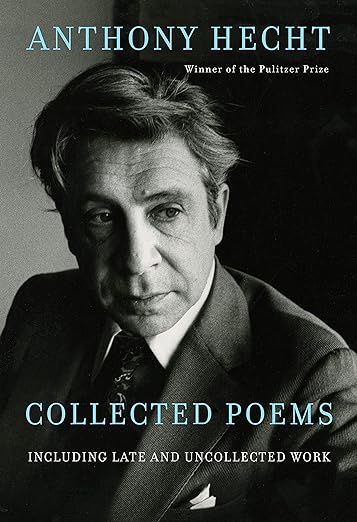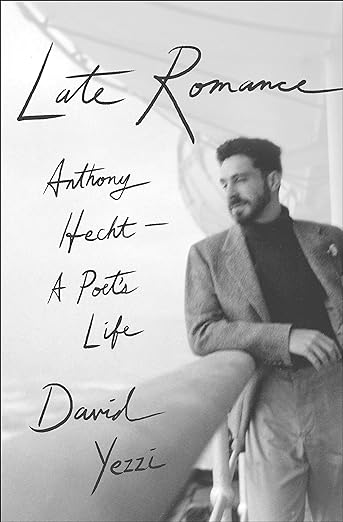
Poet David Mason writes about friend and fellow poet Anthony Hecht in The Wall Street Journal. Two books mark Hecht’s 100th birthday this year – a biography and a new collected. Mason writes:
“The poet and critic David Yezzi’s Late Romance (St. Martin’s) is a first-rate literary biography, graceful, thorough and moving, without the bloat commonly found in such endeavors. And the English publisher and editor Philip Hoy has given us a superb Collected Poems: Including Late and Uncollected Work (Knopf), including not only work from Hecht’s previous collections but also seven beautiful ‘Late Poems From Liguria’ and a worthwhile selection of uncollected work. Since Hecht is among the most erudite of modern poets, steeped in the Bible as well as Shakespeare, readers may be pleased to find nearly 50 pages of textual notes, plus a brief chronology.”
Mason writes: “Born to a family of nonobservant Jews in New York City, Hecht grew up with privilege but also a sense of life’s precariousness. His father frequently failed in business and thrice attempted suicide. His mother’s social pretensions eventually got on Hecht’s nerves. At the age of 6 he saw one result of the 1929 market crash—the blanket-covered bodies of suicides lying on the sidewalks.”

Hecht served in the U.S. Army during World War II, and served as a translator from French and German at ‘the liberation of Flossenbürg Concentration Camp . . . an hour’s drive from his Jewish great-grandfather’s hometown of Buttenheim,’ Yezzi writes. “What he saw in that camp and in combat ruined his sleep.”
His marriage was unhappy. Patricia Harris, a fashion model whom Sylvia Plath called as “pleasant as razor blades,” eventually moved to Brussels. His second marriage iin 1971, to Helen D’Alessandro, celebrated in his marvelous book Millions of Strange Shadows (1977).
Mason’s review concludes: “Readers will differ in their own responses to individual works, but no other recent poet in English has left us such an abundant display of what a certain kind of talent—ironic, formal, elegant—can do. He was my teacher and friend, which leaves me echoing what he said of his friend Joseph Brodsky: ‘Reader, dwell with his poems.’”
Read the whole thing over at the Wall Street Journal here.
Tags: Anthony Hecht, David Mason, David Yezzi, Philip Hoy

